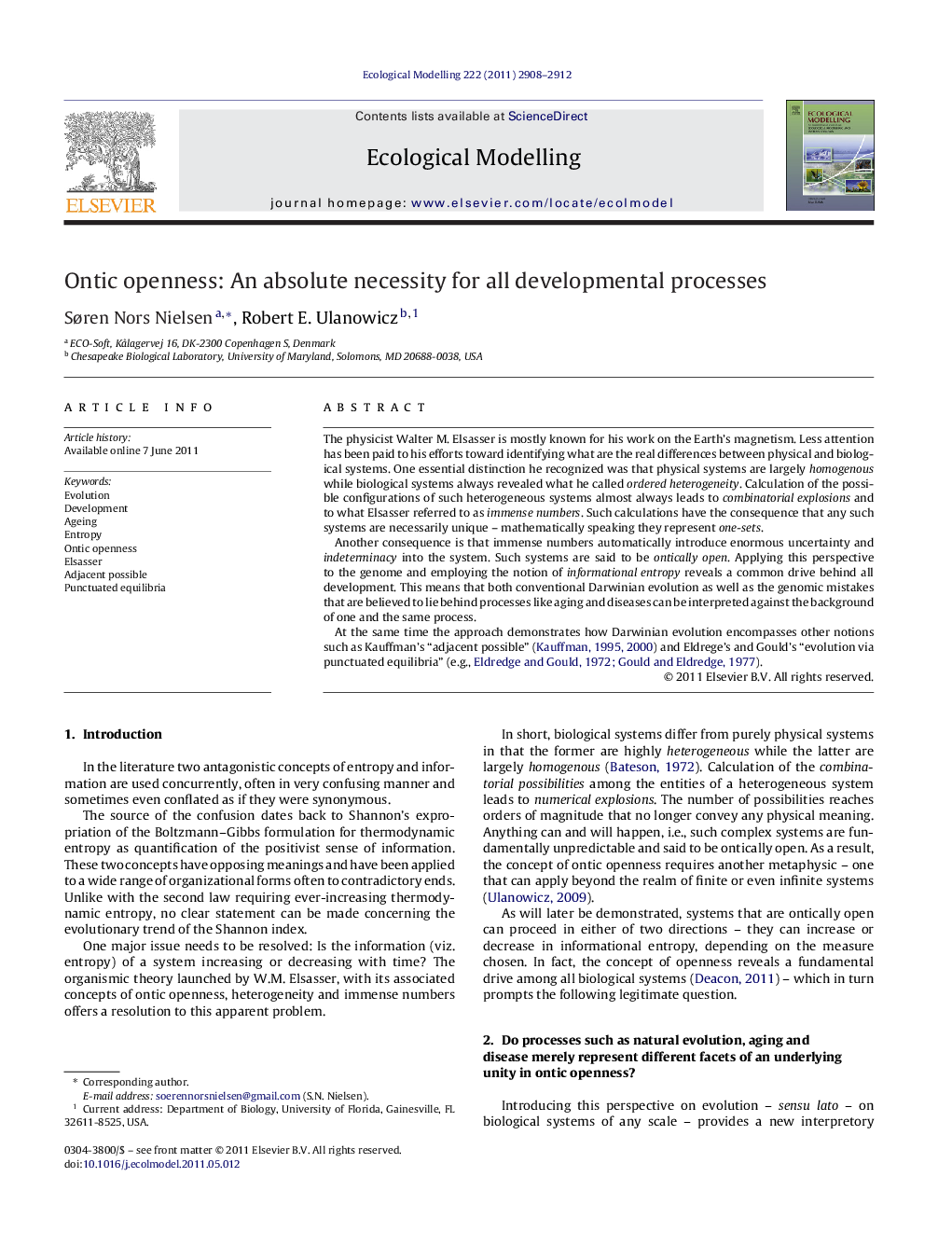| کد مقاله | کد نشریه | سال انتشار | مقاله انگلیسی | نسخه تمام متن |
|---|---|---|---|---|
| 4376752 | 1303392 | 2011 | 5 صفحه PDF | دانلود رایگان |

The physicist Walter M. Elsasser is mostly known for his work on the Earth's magnetism. Less attention has been paid to his efforts toward identifying what are the real differences between physical and biological systems. One essential distinction he recognized was that physical systems are largely homogenous while biological systems always revealed what he called ordered heterogeneity. Calculation of the possible configurations of such heterogeneous systems almost always leads to combinatorial explosions and to what Elsasser referred to as immense numbers. Such calculations have the consequence that any such systems are necessarily unique – mathematically speaking they represent one-sets.Another consequence is that immense numbers automatically introduce enormous uncertainty and indeterminacy into the system. Such systems are said to be ontically open. Applying this perspective to the genome and employing the notion of informational entropy reveals a common drive behind all development. This means that both conventional Darwinian evolution as well as the genomic mistakes that are believed to lie behind processes like aging and diseases can be interpreted against the background of one and the same process.At the same time the approach demonstrates how Darwinian evolution encompasses other notions such as Kauffman's “adjacent possible” (Kauffman, 1995 and Kauffman, 2000) and Eldrege's and Gould's “evolution via punctuated equilibria” (e.g., Eldredge and Gould, 1972 and Gould and Eldredge, 1977).
Journal: Ecological Modelling - Volume 222, Issue 16, 24 August 2011, Pages 2908–2912